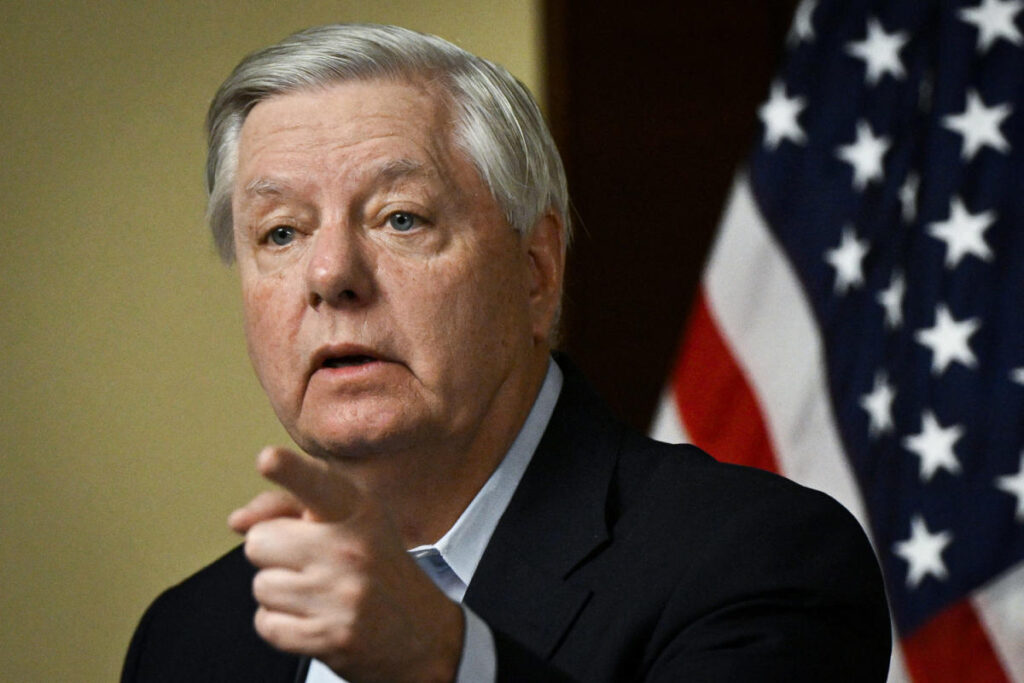On Sunday, GOP Senator Lindsey Graham of South Carolina voiced strong disapproval of fellow Republicans who are endorsing Vice President Kamala Harris in her presidential bid. During an appearance on NBC’s “Meet the Press,” Graham asked these party members, “What the hell are you doing?” He criticized Harris as “the most radical nominee in the history of American politics,” arguing that her policies, derived from the Biden administration, have contributed to the country’s current predicaments. Graham’s comments reflect a broader tension within the Republican Party, as some high-profile figures, including former Reps. Liz Cheney and Adam Kinzinger, have publicly supported Harris, a move that Graham seems to view as misguided and damaging.
Graham’s remarks come against the backdrop of former President Donald Trump’s recent provocative rhetoric, wherein he branded Democrats as “the enemy from within.” At a rally in California, Trump specifically targeted Democratic Representative Adam Schiff, and reiterated this characterization in subsequent interviews, including a taped segment on Fox News. Graham downplayed Trump’s statements, suggesting that their political success in the upcoming election will stem more from the Democrats’ actions during Biden’s presidency than from Trump’s incendiary comments. He argued that the electorate is seeking fresh policy ideas, positioning Trump’s comments as mere distractions from the substantive issues facing voters.
The senator’s concern about the endorsement of Harris by certain Republicans points to an internal conflict within the GOP about the direction of the party and its policy stances. Graham himself has firmly aligned with Trump’s brand of politics, which emphasizes a combative stance against Democrats and a focus on traditional Republican issues. He expressed frustration over Harris’s lack of a distinct or alternative policy vision, referencing her comments on “The View” where she claimed that there was “not a thing that comes to mind” regarding how she would approach governing differently than Biden. This, Graham contends, underscores a troubling continuity of policy that he argues voters are unlikely to support in the next election.
As the political landscape continues to evolve, Graham’s comments illuminate a critical moment for the Republican Party, one in which allegiance to Trump’s rhetoric may not necessarily align with the strategic interests of all Republicans. The outreach to moderate voters by endorsing a candidate like Harris may suggest a potential fracture within the party. Graham’s concerns come not only from a critique of Harris’s candidacy but also from apprehension about the long-term implications of these divergent Republican endorsements, especially as they may affect the party’s overall unity and electoral strength moving forward.
The political dynamics surrounding Trump and Harris are indicative of a broader ideological battle within the United States. Trump’s characterization of Democrats as enemies showcases a growing polarization in political discourse, while Graham’s insistence on traditional Republican values reflects an ongoing effort to rally the party base around a cohesive set of beliefs. The endorsements of Harris by Republican figures like Cheney and Kinzinger signal a willingness among some to break ranks with traditional GOP orthodoxy, potentially reshaping the landscape for the upcoming 2024 presidential election and beyond.
Ultimately, as Graham hastens to point out, the stakes of this election are high. He argues that voters are frustrated with what they perceive to be the failed policies of the Biden-Harris administration, and he suggests that any support for Harris from within his party is not only misguided but could also hinder efforts to bring about change in the country. As different factions within the GOP navigate this internal conflict, the party will need to reconcile these divergent paths if it hopes to effectively campaign against Harris and the Democratic agenda in the future.

